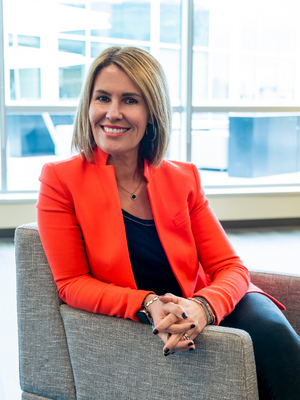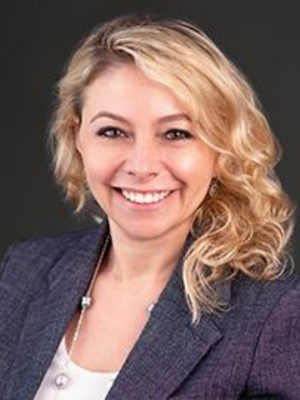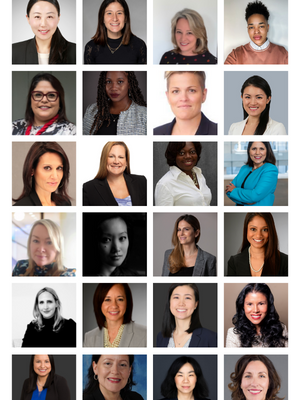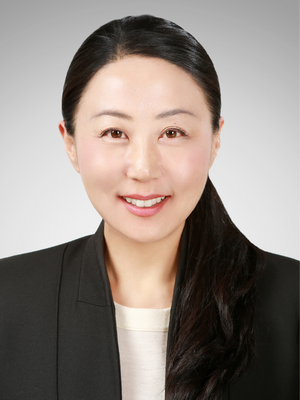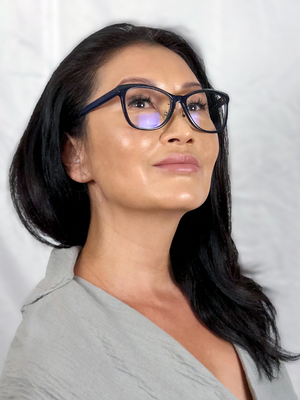 “We’re all drops in the ocean, but together we can move the moon. Small things matter. Because if we all do one small act, together, collectively and as a community, we can move mountains, and that’s always been the case,” says Alice Chun. “I think we each create a ripple in the water from just a drop, and that if we all work together, this change can really occur. It’s not just one thing that’s going to be the answer to our issues, it’s going to be an ecosystem of many things working together to create resilience.”
“We’re all drops in the ocean, but together we can move the moon. Small things matter. Because if we all do one small act, together, collectively and as a community, we can move mountains, and that’s always been the case,” says Alice Chun. “I think we each create a ripple in the water from just a drop, and that if we all work together, this change can really occur. It’s not just one thing that’s going to be the answer to our issues, it’s going to be an ecosystem of many things working together to create resilience.”
We interviewed Alice Chun, female inventor and co-founder and CEO of Solight-Design. Born in Korea, she immigrated to the U.S. as a child and grew up in upstate New York. Since learning origami from her mother as a girl, Chun has been fascinated with the possibilities of using imagination and design to change our world for the better.
Exploring emerging trends in material technology – lighter, faster and sustainable – she began experimenting with sewing solar panels to fabric while teaching Architecture and Material Technology at Columbia University. When her son Quinn was diagnosed with asthma, which is 40% more likely for children in New York City, she became aware of the staggering pollution from energy consumption and the deadly impacts of kerosene in off-the-grid places of the world. Chun became focused on creating clean light solutions that harness solar energy.
Her TedX talk, 10 Million Rays of Light, focuses on the story behind her first invention, the SolarPuff™, the world’s only self-inflatable, portable solar light. With the backing of a KickStarter campaign, Chun launched Solight Design. Her origami-inspired lights run the gamut from art exhibition to humanitarian aid. They’ve been exhibited at MOMA, featured in The New York Times for summer gatherings and lit the night for Syrian refugees.
Chun holds several patents and has won the US Patent Award for Humanity. Advocating that design provides dignity, Chun is passionate about getting her lights to people and children in crisis zones and off-the-grid areas. She’s brought many thousands of her lights to crisis areas, as well as worked with NGOS to deliver and distribute them.
Going on these “light drops,” she’s personally traveled to Nigeria, Puerto Rico, Dominica and Haiti (nearly 20 times). As we talked with her in December 2022, she was about to head to the Ukraine. More than anything, she seeks to spark the light in each of us that can together impact the world. We talked with Chun about creating impact as a female inventor.
On growing up in a creative household:
“I was born in Korea. I was blessed that my mother was an artist and my father was an architect. It was post-war and my parents had to immigrate to the United States because of my father’s position doing the World Trade Pavilion in Montreal for the World Expo. They came first, and then sent for me later. I was four years old when I came to join them.
My mom taught me origami, like many Asians. And back then it was more novel. I grew up in a very creative household that taught me, at an early age, that you can use your imagination to make things and you can help yourself through difficulties by using your creative senses.
Everything that I’ve done was never really planned. When I went to college, I went for Architectural design. After my masters at University of Pennsylvania, I started to teach architecture (Columbia University, Parsons the New School), but teaching first found me by accident. I didn’t find it.”
On how imagination is the ability to create something better:
“While I was teaching in architecture, we started to do community outreach projects with architecture students. Around Philadelphia, there were so many abandoned sites and parks that were just rotting away. We were putting in planters and benches and building a little playground. It was so rewarding to see how it transformed those communities.
Kids would come up curious and ask what we were doing. We’d tell them, ‘We’re architecture students and we’re building architecture for you.’ So they would ask what architecture was. And we would explain that whatever you can imagine, you can also make a model of and then you can build something new. It is all about design. Design is about imagining something different and more beautiful for your environment.
Being able to interact with the community and learn from them, as well as teaching them about architecture and empowerment, was a real moment of feeling that I could make a difference and what we were doing mattered. I wanted to continue to do that.”
On the moments that catalyze the impulse of innovation:
“Whenever I was teaching, I used to tell this story: the story of time. The Greeks believed that there are two characters of time. One is Chronos, who is old with a beard and a cane. His line of time is predictable and very straight. Then, there is Kairos, the young character of time. His line of time is very unpredictable and chaotic.
We all experience those two lines of time, every day of our lives. When those two lines intersect, those are the moments of opportunity and the moments of invention. And it’s a matter of leaning in or leaning back when those moments happen.
So if I look at the trajectory of my inventions, and why they occurred, it’s because of problems I saw. I would never have imagined that my child would be born with asthma. And there was climate change and natural disasters and the earthquake in Haiti. All of that was the impetus for me to step back and say, ‘Enough is enough. We have to do something to help.’
I was the materials lab director at Columbia University, and my focus was on natural materials. There’s far more intelligence and knowledge in natural materials than the petrol-based plastics that we’ve been using for four decades. So, I was sewing solar panels to fabric and then substrates, to basically invent something new as a material: a solar harvesting surface to make everything thinner, lighter, faster and smarter.
The only way I knew how to lean in to help in Haiti was to turn my studio at Columbia into an innovation studio. So, what I was doing before evolved. And that’s when we realized this detriment that’s happening globally. 1.6 billion people don’t have access to electricity, and they’re using kerosene to light their world at night. Two million children die from the toxins. In South Africa alone, there’s 200,000 house fires every year. That was the impetus for asking ‘What can we do?’ and ‘How can we help?’
So every time, it’s really about those two lines of time intersecting – and then saying ‘How can we solve this problem?’ and ‘How can we do better?’”
On the magic when necessity meets curiosity:
“Sometimes you’re confronted with a problem, and you don’t know what to do. You just know that something has to be done. It sticks in the back of your mind as something that gnaws at you. Every time, at that point for me, that’s where the spark of curiosity came.
They say ‘the mother of invention is necessity,’ but ‘the daughter of invention is curiosity.’ So with curiosity, you’re constantly questioning – What if? Or could it be like this? Or maybe there’s an answer here, or there? Once the problem sticks in your brain, everything else becomes a window for opportunity because then you’re already beginning to connect the dots.
Curiosity is directly related to imagination and creativity and problem solving. What’s most important are the questions that you ask, not so much the answers. It’s those questions that end up creating something new. So with asthma and pollution and health, for example, I had already been researching solar energy and the connection to cutting pollution. 75% of the pollution in NYC comes from buildings and energy consumption. But the sun is free and it’s limitless and it’s the most powerful source of energy that comes to the Earth every day.
So the dots begin to align and connect. You may not have the answer right away, but it’s a matter of continuing and keeping that thread open to connect to the next dot when it happens.”
On breaking through the ceiling of fixed perception:
“So-Light Design is a small company. I’m one person. I’m a mom, I’m a teacher. The paradox is that we’re a small company, but we’ve had a big impact – purely because we’re just doing what we feel is right. But we’ve been able to impact over a million lives worldwide because of our mission.
So what I’m always trying to break through is the boundaries that we all create when we perceive the world in a certain way.
For instance, early on when I was traveling to these red zones, everyone told me not to go. People said I would be shot or raped or kidnapped. But I went to Nigeria and Makoko there – which is the largest slum in sub-Saharan Africa. I met the most amazing and kindest people and witnessed the impact of the light that I brought. Then I went to Haiti. People were telling me not to go there, too. I’ve been there twenty times now, and I’ve befriended amazing people. Now people are telling me not to go to Ukraine because it’s a war zone, but I am going.
I want people to know that there’s always two sides of the story. There’s not just one narrative or only one way to see anything. Part of creating art is to break through the preconceived way we see the world. It’s a big issue right now – with racism, discrimination, with war – it’s so prevalent and we have to change it. There’s so much that we have to gain and to learn – historically and culturally – from breaking out of our narrow perceptions.”
On inventing a product that spans from MOMA to crisis zones:
“Because of my background as a designer, I have the three design cornerstones of durability, beauty and functionality or utility. Those are the same three cornerstones of architecture and they could also transfer into a way of thinking about business and being an entrepreneur.
It’s hard to get all three, but I think beauty is something that needs to be addressed in design. When giving out humanitarian aid in places like Haiti, I’ve witnessed some NGOs have a tendency to buy the cheap stuff to hit the mark on how many items they’ve donated. But they’re often the cheapest flashlights or the cheapest solar panels, and they end up in the landfill in a short time because they don’t work.
I’ve not seen many organizations who drop off supplies give any attention to beauty, wonder or awe. But I think all of that is just as important as utility. Why can’t we give beauty, wonder and awe? Because if you don’t have that, you don’t have hope. If you don’t have hope, you’re going to die.
I remember a fascinating moment after the earthquake in Haiti, when there was rubble everywhere and tent camps were popping up. I saw this woman coming out of a tent camp and she was dressed in red and perfectly made up with lipstick. I don’t know, but that lipstick seemed to make the day for her because it was the moment of beauty, wonder and awe.
In my perspective, design provides dignity and good design should be able to sustain a life in Nantucket or Nigeria. Good design doesn’t have boundaries – like culture or race. It doesn’t discriminate. So good design should incorporate awe and wonder as well as being useful. I don’t think many NGOs think about that, or how important it is for the stakeholders and the cultural societal aspects of wherever these issues exist.”
On igniting possibilities through ‘light drops’:
“I put a thousand lights in my luggage and I flew down to Dominica. I didn’t really know where I was going. I just wanted to go to the Kalinago territory. The Kalinago are the oldest Indian tribe in the Northern Hemisphere. I’d heard that they had been hit the hardest with Hurricane Maria.
Through a fortunate chain of serendipitous conversations as I arrived, I was positioned to visit seven different schools in the Kalinago region. I saw five kids living in a one room house with a single mom. They had their one meal a day at school and no electricity to do their homework at night. I resisted the urge to just hand out the lights, because I wanted to tell them why I was there, why they’re so important and why we haven’t forgotten about them.
I shared that I came from a poor beginning and was beat up a lot when I was a kid, because I didn’t look like the other kids. I was the only Asian. And I didn’t fight with my fists. I ended up fighting with the light in my mind and the light in my heart. And I tell the kids, ‘You have to fight with that light in your heart and that light in your imagination. Keep fighting with that light and don’t use your fist. And I’m giving this light to you because now you can hold the Sun in your hands. And the Sun is the most powerful source of energy that comes to the Earth every day. But the light of your imagination and the light of your heart is even more powerful than the Sun.’
The kids cackle and giggle and I reassure them, ‘Yes, you are that powerful and if you keep fighting with the light of your heart, there’s nothing you can’t do.’ I tell them to use this light for their homework, so their dreams and ambitions can grow. A lot of the girls look at me in disbelief and say, ‘What! You made this?’ Even some of the elderly women or teachers can’t believe it. That’s really important to me, because in that ‘aha’ moment, they are saying to themselves, She’s a woman and she did this. Maybe I can. I have the power to do that, too.
Sharing that narrative with them is more important to me than delivering lights. That’s the other reason why I go on the light drops.”
On encouraging more female inventors:
“In my research, I went back into history and some of the women were excluded from patents they should have been on. But, overall the number of women on patents is so small, and that needs to change, too. My hope is that when I speak to kids and young women, that it will inspire them to use their imagination and change the world for the better by solving a problem and creating something new.
It goes back again to two characters of invention – the mother of invention being necessity and the daughter being curiosity. Those are two female characters, but only 13% of inventors are women in the United States patent and trademark office. And then in terms of entrepreneurship, far less than 1% of IPO businesses are led by female founders and only 2.3% of venture founding partners are women.
We need more girls and women in STEM programs and more funding for women and female minorities in terms of scholarship and grants. But the only way we’re going to change the amount of investment that goes into female-run entrepreneurs is getting more female businesses to get an IPO. So there’s this kind of chicken and egg thing happening.”
On her trip to the Ukraine:
“We’re going to get about 5,000 lights to Ukraine. But in my luggage, I’m bringing 1,000 with me. Our colored light was used for PTSD for children after Hurricane Maria. It has different color options, and we hadn’t realized this would be helpful to the kids. But we found out that the different colors actually help them calm down at night and it helps them to sleep. After an earthquake and there’s no light, the kids are so frightened. So they were used as night lights for kids in shock or with PTSD after the hurricane.
When I heard about the blackouts happening in this children’s hospital in Ukraine, I knew I had to go deliver these colored lights. They told me the nurses were taking three hours to calm the kids down after the blackouts. There are over two hundred kids and most of them are refugees, and there’s two more hospitals in Lviv. I’ll also go to Kiev. Over 2.5 million children are currently displaced within the country.
These hospitals have generators, but they are using that for essentials like heat and the ICU. These lights and phone chargers are going to be critical for light at night and charging. This is a lifelong traumatic event. And after the war, it’s going to take years and decades to rebuild.
But my greatest hope for the future is our children. Whenever something happens, dealing with children especially, I try to do whatever I can and often travel to deliver lights. I’m inspired by my own son and by all the kids that I meet along the way and in different countries. I’m inspired by how smart and intelligent and enthusiastic and hopeful they are about the future, and passionate that they know they can create.”
For more on Alice Min Soo Chun, check out coverage in Marie Claire’s Powertrip 2022, The Skimm, The Story Exchange, Fast Company, The New York Times, Cheddar, Huffington Post, and Men’s Journal. Chun was nominated for USPTO Patents for Humanitarian Winner in 2018. She was named among Forbes 50 Over 50 recognizable women of 2022. She is co-author of the book Ground Rules for Humanitarian Design. During the pandemic, she also launched a business selling patented transparent face shields and respirator masks, SEEUS95.
By Aimee Hansen



